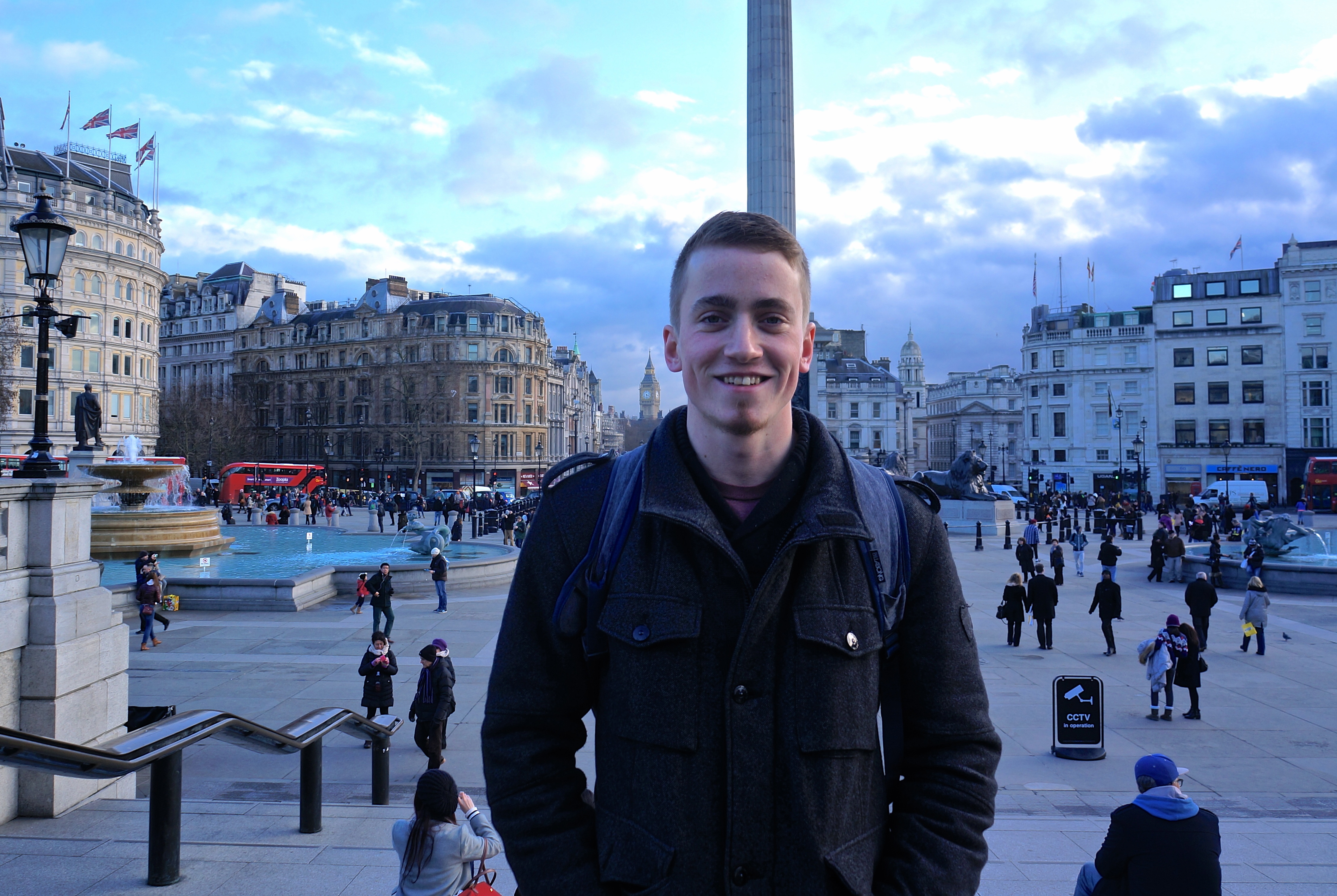
Exchange experiences – Breaking out of the academic routine 3
Our study abroad theme continues with the stories of Julian’s and Pia’s exchange experiences. What can you expect from studying at UCL and what can you do on cold winter days in Canada? This will be the last piece from these two students. If you are interested in contributing yourselves, email us at mindwise@rug.nl.
Julian Mutz on exchange in London, England
It’s been more than 7 months now since I left the Netherlands to live and study in London, and a lot has happened since. Throughout the year, I have met many amazing people, made some very good friends and have been involved in many exciting projects at university! Even though this wonderful time will soon be a closed chapter of my life, there is still a lot to talk about since my last post.
The academic year at UCL is quite different from what I’ve been used to in Groningen. The year is divided in trimesters rather than semesters and you have two trimesters of teaching and one trimester of exams. During the year, there are two reading weeks of which I spent the first one visiting friends from the University of Groningen who were on exchange in Geneva and Prague. During the second reading week, I went to Groningen for a seminar of the Honours College, which was also a great opportunity to see all of my friends, fellow students and some members of staff again!
One of the projects that I took part in was an experimental study at the Institute of Cognitive Neuroscience in which we used a non-invasive brain stimulation technique called transcranial direct current stimulation (tDCS) to investigate the role of the human frontal cortex in sense of agency (i.e. the subjective experience of being in control over one’s own actions). This is an important topic to investigate, since it is (1) disrupted in a number of mental disorders such as psychosis and depression, and (2) central to the idea of responsibility, which lies at the root of our society. Besides being in itself an interesting topic of investigation, I was very excited about getting some hands-on experience with tDCS! This is a form of neurostimulation delivering mild current to a brain region of interest via electrodes that are placed on the scalp. Like most other brain stimulation techniques, tDCS has received quite a lot of hype in both the scientific community and the popular media and I found it particularly interesting to learn that the neuroscientists who actually work with it are generally rather sceptical about it!
From November on, I have also been involved in a research project at London Metropolitan University, which investigates how individual differences in mental toughness associate with variations in emotion-regulation strategy use as well as symptoms of depression and stress. This has started out as an internship but soon became the project for my bachelor thesis.
Throughout the year, I’ve been regularly hosting friends from abroad and explored many different parts of London with them. Since I really like to live in the UK, I will spend another year here in London, which I am extremely happy about!
Pia Kreijkes on exchange in Montreal, Canada
The sound of clicking computer keys was the first thing that caught my attention during classes at McGill University. Literally every student was taking notes with their laptops and I kept on wondering why they were all typing frantically. Therefore, I peeked over to their screens to discover that they wrote down almost every single word the lecturer said. For me, that reflects what you hear about McGill and McGillians: The university has one of the hardest admission criteria in the country and is highly competitive. And indeed, you could feel the motivation and ambition of the students in the atmosphere.
I followed four courses, which had two lectures every week for the whole semester, resulting in 24 (!) lectures for a single course. Hence, I got the chance to look under the surface of the subject matter instead of only learning a bit about everything without gaining a deep understanding. The courses “Child Development” and “Human Motivation” taught by Kristine H. Onishi and Richard Koestner, respectively, were the best that I took so far during my Bachelor programme. Especially “Child Development” was a great class: Completely without powerpoint presentations, using only words and giving little demonstrations of experiments with toys, Dr. Onishi managed to keep the whole class engaged. Even though we were a couple of hundreds students, we had to actively participate during lectures as she pointed out students to answer questions or reason about possible outcomes of a study. That was a completely new lecture experience for me!
Besides the final exams, we had to take midterms (sometimes even multiple per course). Moreover, I had to do in-class assignments and write papers which counted towards the final grade. The grade did thus not only depend on one exam but various assessments, which I find very fair (but of course also more stressful). Having to memorise the content of 24 lectures plus the reading material for the finals was quite demanding. Overall, I was highly satisfied with the course quality.
I also had the pleasure to do a research internship at the Centre hospitalier universitaire Sainte-Justine supervised by Linda Booij, which was only possible thanks to Marije aan het Rot who established the contact. It taught me a lot about conducting research because I was responsible for participant recruitment and testing on my own. Moreover, it was a fantastic experience because of the wonderful research team that I worked with.
Even during stressful periods I tried to take the time to do fun stuff with my friends. We visited a couple of parks such as Mont-Tremblant National Park where we went hiking and slept in a chalet (a little wooden house). We also drove to Nova Scotia, some 14 hours from Montreal, to go hiking, canoeing, and whale watching – unfortunately, there were no whales to be found but the views were impressive anyways.
Not only summer but also the fall and winter seasons are quite special in Montreal. During the Indian summer, the colours of nature change completely. It looks simply stunning when the maple leafs turn into all shades ranging from light yellow to deep red. And then comes winter. I only stayed in Montreal until the end of December, which is why I did not experience the “real Canadian winter”. The coldest days I experienced must have been around minus 15 degrees, which is considered a warm day. One time, I could not get out of the bus because of a huge snow pile in front of the doors. Whenever I exclaimed that I have never seen that much snow before, Canadians only responded with “Pia, this is nothing! It did not even start yet”. Winter is the season to go ice skating, snow shoeing, sledge riding, skiing, and snowboarding. There is plenty to do if you do not hide away in your warm living room!
This is the last post about my exchange experience. I hope that you enjoyed reading and that you gained a first impression of Montreal and McGill. Of course, there is nothing like experiencing it yourselves! I can only recommend everyone who is interested in going abroad to consider Montreal. McGill University fulfilled all I was hoping for so that I thoroughly enjoyed studying there, while it was also quite a challenge. Leaving this pulsating city and all the great friends I met was difficult; hence, I hope I will be able to visit again soon.





